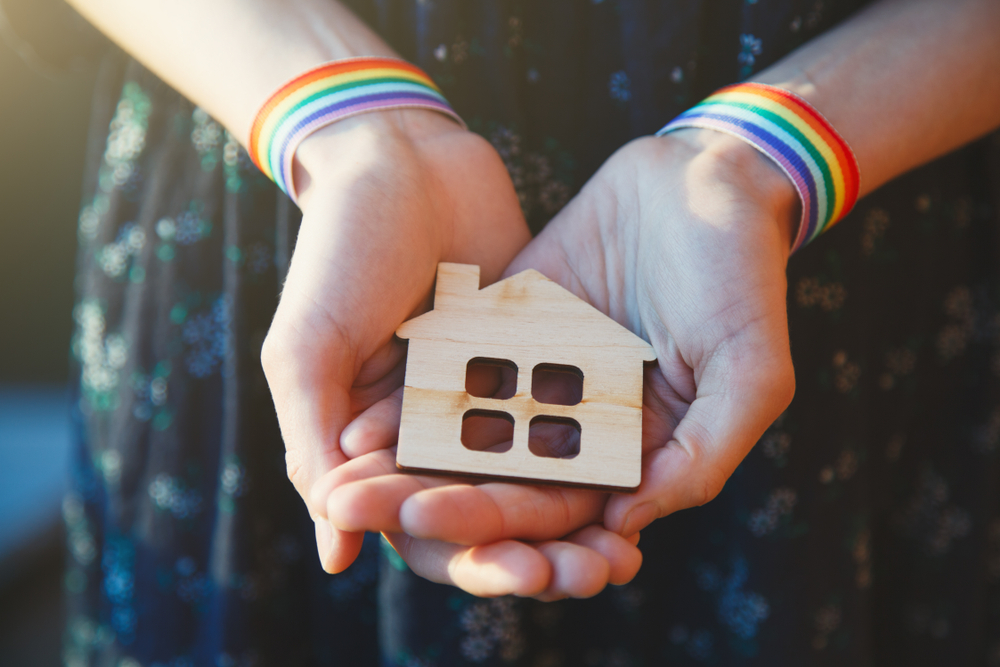The sources of teen stress come from many directions, and oftentimes, the best way for them to cope is by leaning into the supportive relationships in their lives. With this in mind, we wanted to hear how teenagers themselves are navigating the pressures they face through the people and bonds that matter most to them. Thrive joined forces again with Write the World to host a narrative writing competition to give young people’s perspectives a global audience. The prompt? Human Connections: the relationships that power you through life. Featured below is the winning entry of the competition, which was guest judged by Thrive’s Editorial Director, Marina Khidekel.
My grandma likes to tell a story about my sibling and it goes like this: Family and friends were gathered in the hospital waiting room, eagerly awaiting my grand arrival onto the earth. When I finally slipped out, my grandma excitedly proclaimed to my sibling, “Claudia is here!”
My sibling replied with “Really?! I’ve been waiting to see her again for so long!” It would just be an average story, of course, if it hadn’t been for the difference that a single word made. “Again” always burns in my mind, igniting a fire that suggests that my sibling and I were connected somehow, some way, in a past life.
Fast forward 16 years. My sibling had been in college for a year and a half by then, not that they minded it at all because they are a self-proclaimed intellectual. Everyone else finds this cocky and pretentious. I personally find it cheeky that they think of themselves as an intellectual who finds simple pleasure in exercising the mind. Despite them living a coastline away, we were connected by an invisible wire. The wire was straight and perfectly silver, and the ends were rounded in such a way that nobody gets stabbed. That’s the way things go when you’ve met each other in a past life.
A mere month later, my sibling decided to mold the wire. They bent and chipped at it until it felt like there was nothing there. That month, they sent my family a letter. Written in typical Riley fashion, like a textbook, they told me simply and plainly: They are nonbinary.
My relationship with gender has always been clean and simple: I’m a girl and I like it that way. Seeing “nonbinary” written on the page was a new concept for me. Of course I knew what it meant in its most basic terms, but there’s a strong difference between a definition and the way it interacts with a human being. In my sibling’s case, the interaction meant gender dysphoria, confusion, and hopelessness — all without telling anyone.
I realize how selfish this will sound, but the part that hurt the most wasn’t the fact that I could empathize with Riley’s suffering. What hurt the most was the fact that they never mentioned any of it to me. Not once during our talks up in our treehouse or our strolls down the neighborhood did they mention anything remotely related to gender dysphoria. We were connected not only by blood, but also by lives and experiences — and they failed to tell me such a vital part of their life? They might as well have reached through the envelope to slap me in the face.
Of course, I don’t know if Riley even knew for sure before they came out. At the time, the letter felt like a betrayal. After all, don’t siblings share these things and not hide them? Especially siblings like us. My parents actively supported Riley by giving them everything from therapy to Pokémon fruit snacks. I, on the other hand, pretended I had never even touched the letter. Pretending is easy. My mom called me closed-minded and an all around bad sister, but it all boiled down to pretending.
Weeks had passed since the letter, and texts between me and Riley were melted down to “hi” and “good.” I felt as though the seemingly invincible wire had snapped and there was no way to piece it back together. But one thing to know about me is that while Riley is a self-proclaimed intellectual, I am a self-proclaimed fighter. And as quickly as I realized the wire had broken, I fought to bring it back to whole.
That day, I built a new wire. This one was with someone named Sasha Fleischman, an agender teenager whose skirt was set on fire. They were using public transportation, wearing the clothes they felt most comfortable in, when suddenly their world was turned upside down by another teenager committing a hate crime. Sasha lived to educate the public about the struggles nonbinary people still face. I learned about Sasha through one of my specialties — extensive internet research. Reading the New York Times article about them opened my eyes to the hatred that still exists in so many people’s hearts.
I could only imagine what my sibling must feel when reading tragic stories like Sasha’s. In the past life Riley and I shared, I must have been a good influence, based on the excitement that my grandma describes was in Riley’s voice when I was born. Did I really want to change that in this life? Did I really want to be the one to make them feel threatened? I didn’t want them to feel like just another victim in an assembly line of non-cisgender people.
Six months after the letter, the fight to reconnect the wire is still deeply important to me, and I regularly text them and call them to check in. True to Riley’s character, they always respond warmly. I wish there was something I could do to make up for the bitter weeks I ignored them completely, but there isn’t. I feel like such a clown knowing that I ever thought of Riley as self-involved for something they couldn’t control. I’ve never brought up the reason why I wasn’t talking to them, but deep down I think we both know. It is because I felt betrayal when Riley had done nothing but live their truth, and my betrayal translated into ignorance. I never want to be that person again.
I’m not going to paint myself as a hero, because heroes don’t hesitate to support in the way I stopped supporting my own sibling. But I will paint myself as someone who values these connections and wants them to live on. With the wire fully formed between us now, I truly hope in this moment that my sibling and I will meet in every life to come. And in this one, the most I can do is fight.
Subscribe here for all the latest news on how you can keep Thriving.
More on Mental Health on Campus:
What Campus Mental Health Centers Are Doing to Keep Up With Student Need
If You’re a Student Who’s Struggling With Mental Health, These 7 Tips Will Help
The Hidden Stress of RAs in the Student Mental Health Crisis


